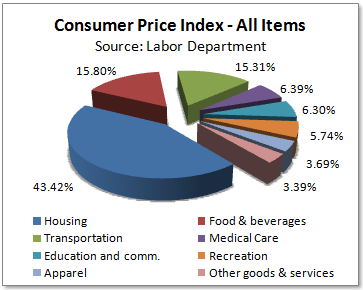- Joined
- Jun 22, 2013
- Messages
- 20,269
- Reaction score
- 28,069
- Location
- Mid-West USA
- Gender
- Male
- Political Leaning
- Other
Toilet-Tissue 'Desheeting' Shrinks Rolls, Plumps Profits - Yahoo! Finance
So here we go, Kimberly-Clark Corp is bulking up toilet paper 15% but reducing the number of actual sheets by 13%. "Consumer products makers call this 'desheeting'—reducing the number of sheets of toilet paper or tissues in each package while holding retail prices constant."
The article goes on to say that this has been a common practice for many consumer products over the years, shrinking the amount you get in order to maintain prices. Examples included in the article: "A regular Snickers bar now weighs 1.86 ounces, down from 2.07 ounces in the past, and Tropicana Pure Premium orange juice is now sold in 59-ounce bottles, versus 64-ounce cartons prior to 2010."
Thus we begin to see what I like to call HIDDEN INFLATION.
Some may think it is funny, joke about "toilet paper;" but hasn't anyone else noticed this shrinkage in other products over the years? Not only shrinkage, but after a period of adjustment eventual increases in prices for these shrunken products? So while you pay the same or slightly higher price for any product, you are getting less and less of the actual product in each package. Yet economists, financial advisors, and our government keeps telling us our worthless money isn't causing inflation, just check consumer prices and see, they've only gone up a few percent each year.
I've been noticing this over time, but I am glad to find a recent article on the subject to post as proof positive on the issue. Proof positive that we are NOT getting what we think we are paying for; that our dollar is not maintaining its purchasing power; and that inflation, though HIDDEN by these practices, is growing rampantly.
Counter this you supporters of our current monetary system! Counter this you Greed is Good Capitalist naysayers who think we don’t need a minimum wage, much less a “living wage” for our workers. Shades of “let them eat cake!”
What do you have to say now? :waiting:
So here we go, Kimberly-Clark Corp is bulking up toilet paper 15% but reducing the number of actual sheets by 13%. "Consumer products makers call this 'desheeting'—reducing the number of sheets of toilet paper or tissues in each package while holding retail prices constant."
The article goes on to say that this has been a common practice for many consumer products over the years, shrinking the amount you get in order to maintain prices. Examples included in the article: "A regular Snickers bar now weighs 1.86 ounces, down from 2.07 ounces in the past, and Tropicana Pure Premium orange juice is now sold in 59-ounce bottles, versus 64-ounce cartons prior to 2010."
Thus we begin to see what I like to call HIDDEN INFLATION.
Some may think it is funny, joke about "toilet paper;" but hasn't anyone else noticed this shrinkage in other products over the years? Not only shrinkage, but after a period of adjustment eventual increases in prices for these shrunken products? So while you pay the same or slightly higher price for any product, you are getting less and less of the actual product in each package. Yet economists, financial advisors, and our government keeps telling us our worthless money isn't causing inflation, just check consumer prices and see, they've only gone up a few percent each year.
I've been noticing this over time, but I am glad to find a recent article on the subject to post as proof positive on the issue. Proof positive that we are NOT getting what we think we are paying for; that our dollar is not maintaining its purchasing power; and that inflation, though HIDDEN by these practices, is growing rampantly.
Counter this you supporters of our current monetary system! Counter this you Greed is Good Capitalist naysayers who think we don’t need a minimum wage, much less a “living wage” for our workers. Shades of “let them eat cake!”
What do you have to say now? :waiting:
Last edited:

